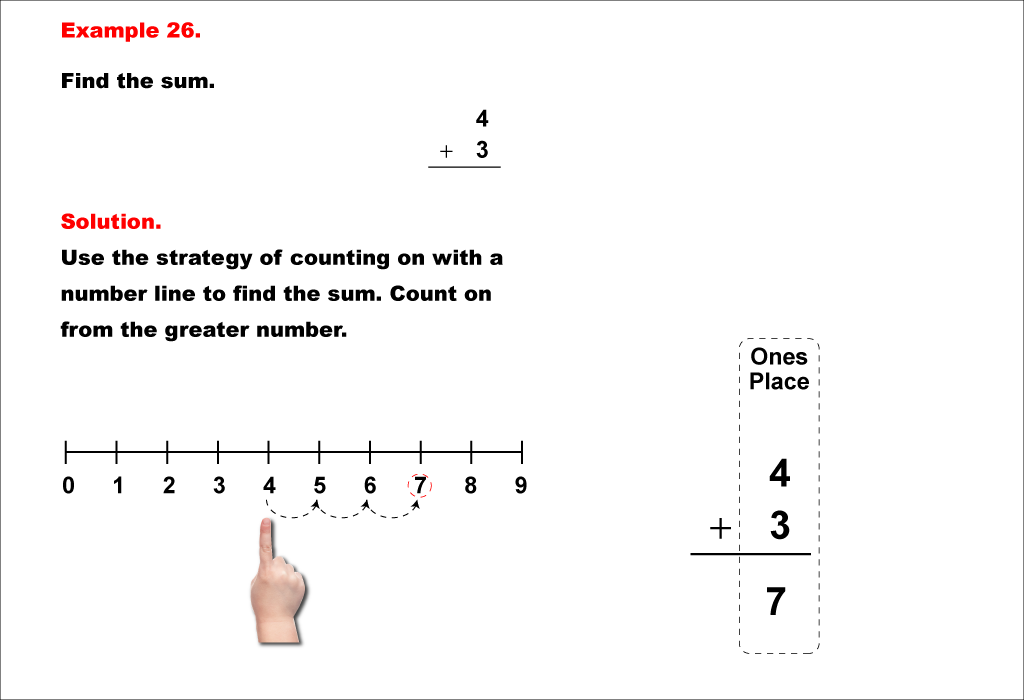
Display Title
Math Example--Arithmetic--Adding Two 1-Digit Numbers (No Regrouping)--Example 26
Display Title
Math Example--Arithmetic--Adding Two 1-Digit Numbers (No Regrouping)--Example 26

Topic
Addition
Description
An example of addition with 4 + 3 using a number line. The hand is shown starting from 4 and counting three steps to arrive at 7. Example 26: Find the sum of 4 + 3. Solution uses a number line, counting on from the greater number to reach the sum of 7.
In general, addition is a foundational operation in mathematics that allows us to combine quantities and understand their total value. The examples in this collection demonstrate how adding one-digit numbers can be visualized in various ways, helping students to grasp the concept of incrementally increasing quantities. By presenting different examples, students can see that the structure of addition remains consistent even as the numbers change, aiding in their understanding and confidence in performing additions.
Seeing multiple worked-out examples is essential for students as it reinforces their understanding and helps them recognize patterns. Each example builds on the previous one, enabling students to predict outcomes, test their knowledge, and solidify their skills in adding numbers.
Teacher's Script: Let's look at this example. Notice how we add each number step-by-step. By starting at one number and counting up by the second number, we find the total. For example, adding one and one gives us two, as shown here. Using this method, we can add any two numbers easily!
For a complete collection of math examples related to Addition click on this link: Math Examples: Adding One-Digit Numbers Collection.
| Common Core Standards | CCSS.MATH.CONTENT.1.NBT.C.4 |
|---|---|
| Grade Range | K - 2 |
| Curriculum Nodes |
Arithmetic • Addition • Addition Facts to 10 |
| Copyright Year | 2021 |
| Keywords | sums to 10, place value, addition |